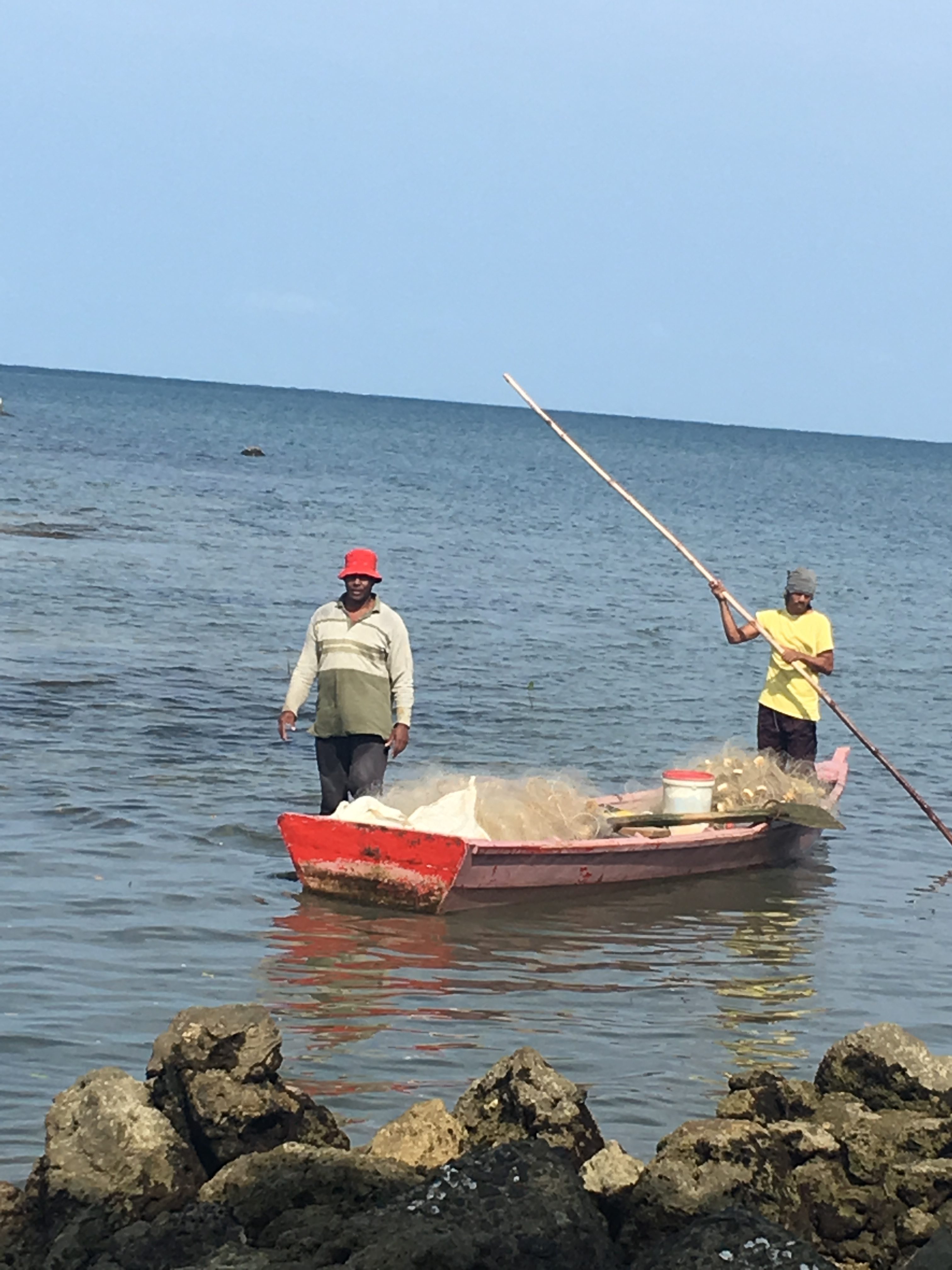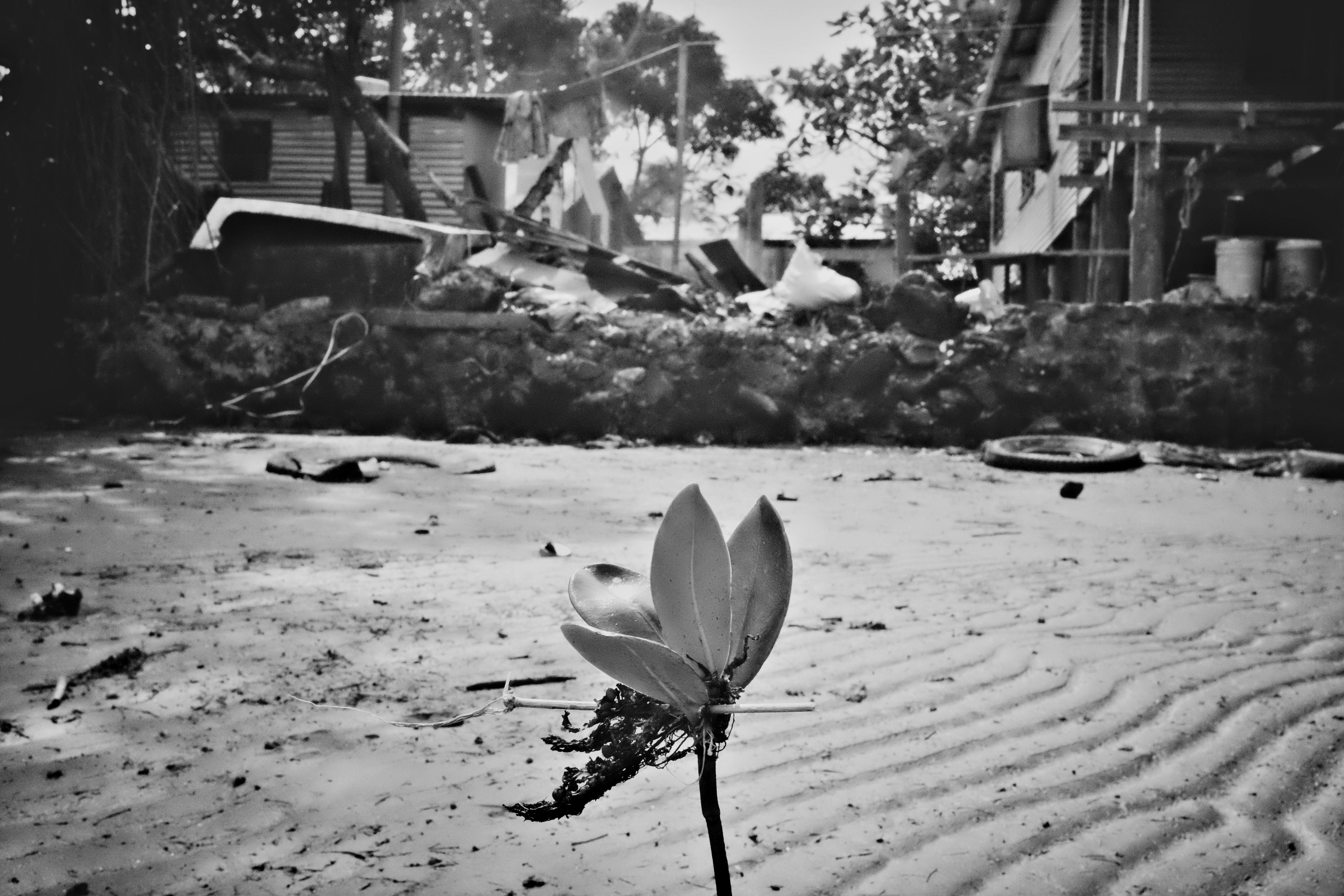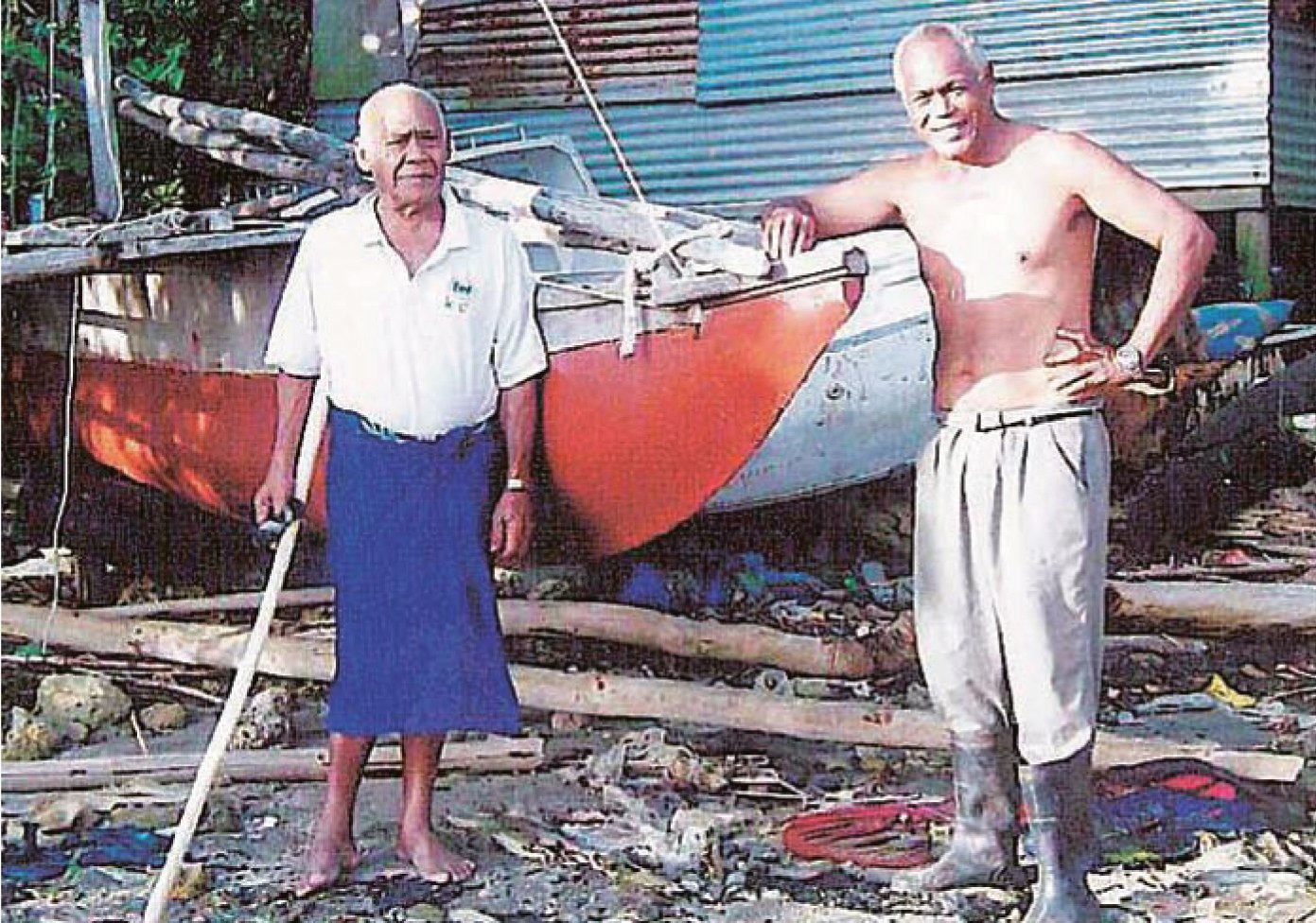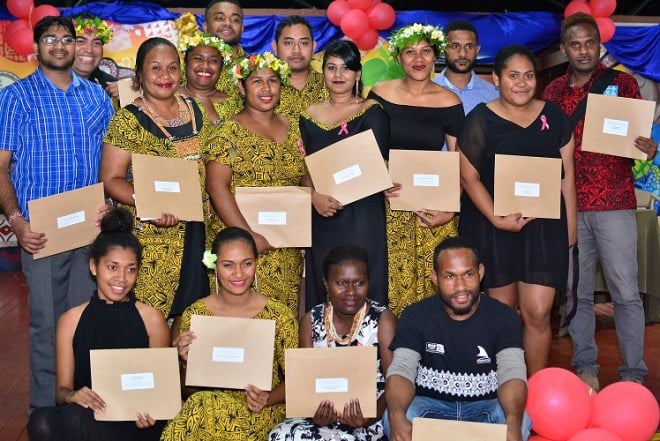NESTLED among a small patch of mangroves on the tip of the Suva peninsula, hidden out of sight from the bustling city that continues to expand close by, the people of Korova exist with the bare necessities and an ancient past they’re holding on to for their survival.
Since arriving on this once rubbish dump from Korotolu in Moce Island in the Lau Group in the early 1990s, they have transformed it into an informal indigenous settlement and called it home.
Korova elder Semiti Cama, whose father Jimione Paki brought his family to the capital for better education and work opportunities, said some of his siblings made the journey across before his father led the rest of the family to “greener pastures”.
“My father came across with four others on a drua (canoe) and beached just outside the old China Club.
The canoe was anchored there until a storm smashed it against the seawall that protected the Suva shoreline.
“We lived with families in Suva until we brought the remains of that canoe to this end to keep when we stumbled on this dump in this mangrove patch. We have been here since.”
The old man Paki wanted a good life for his 16 children and like the rest of Lau in the urban drift of the ‘80s and ‘90s, a good education was only available in the town and cities to the bigger islands towards the West.
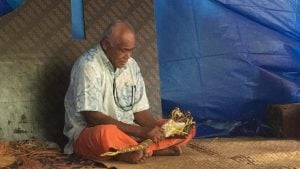
Seeing their struggles at Korotolu, he made the decision that would dictate the future of his kin, packed up and sent some of children ahead by ship. He and four other relatives made the 327km journey on a drua built by his wife’s family on neighbouring Ogea Island.
Three days later, Paki rejoined his family in Suva.
After enquiring with the Lands Department, they made a presentation to the traditional landowners of the dump site at Suvavou Village and started building homes among the mangroves.
Every New Year since, Cama leads his clan to Suvavou to thank their tauvu, a sacred relationship between the two provinces, for their kind gesture.
Today, Paki’s grandchildren are educated. Some are teachers, tradesman, one a doctor.
Cama said his father’s decision to move them to Suva has paid off. Their children earn and look after the extended families.
They still keep in touch with their kin left behind in Korotolu. Red clay from the island helps sustain the handicraft their women make. Relatives send over bark of the mulberry tree from which tapa is made and the clay is used as ink for their design.
“We tried to use red soil on Viti Levu but didn’t work as well as what we use on the island, so very time someone comes from the island, they bring our bark, tapa and the soil. That’s how we are able to keep alive our knowledge of masi and mat designs,” Selai Buasala, a resident of the settlement said..
Money women earn from the sale of their handicraft is used on their families.
“This knowledge of mat weaving and masi design we pass on to our children so they keep in touch with their traditions. It’s something they can always fall back on in life,” she said.
Cama said over the years they have learnt to make do with the little they have.
“We have learned to cope. We are resilient people.”
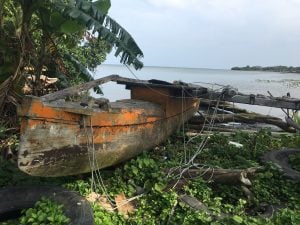
The remains of the hull of that drua that Paki came on under one of the eight houses that’s home to Paki’s children, grandchildren and great-grandchilden remains their hope that their traditional knowledge in shipbuilding, voyaging and handicraft will never disappear, like the old man and his youngest son did.
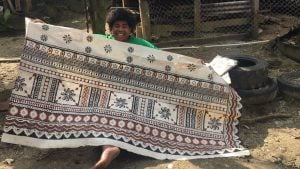
In 1993, Cama’s brother, Metuisela Biuvakaloloma, on his attempt to fulfil the old man’ wish to turn Korova into a traditional village and start a drua cruise business in the Suva harbour to showcase their voyaging and handicraft skills, disappeared at sea while returning from Lau with a newly-built canoe for that purpose. Paki suffered the same fate when he sailed to Lau with that same intention in 2006.
In their culture, canoe building is based on a customary economy. It signifies wealth, family unity, accompaniment of elders, respect for each other and respect or the environment and the ocean.
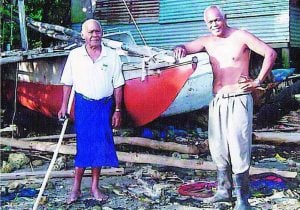
As the curtains came down on the Climate Action Pacific Partnership (CAPP) in Suva a fortnight ago after two days of discussions and meetings in the effort to accelerate climate action in the Pacific and support international efforts to achieve the emissions reduction target set by the Paris Agreement, the people of Korova were doing the same, their own way on the frontline of this campaign.
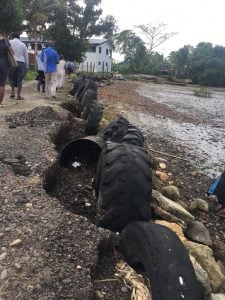
Cama said a s a community that has faced the effects of climate change in the last three decades, they have learnt to be resilient and do what they can to deal with the issue without waiting for government help.
Whenever there is a tide surge, water enters the community. A barrier of tires and cement slabs they placed in front of the settlement fails to stop these surges.
Korova youth leader Jim Tuimoce Fuluna said they planted mangroves around the community but more was needed.
“We took the initiative to source some funding from Civicus through PIANGO (Pacific Islands Association of Non-Governmental Organisations) and we did some work to safeguard our community,” Fuluna said. “Our only regret is only that we were not aware about climate change much earlier,” he said. “We have watched the waves come closer but did not know what to do. We had no training on how to plant these mangrove seedlings but managed to plant them by trial and error.”
Fuluna said it was sad to hear of so many hi-level conferences with” little action on climate change”.
“All we hear about is just talk. There is little action where the effects are being felt. Our families are exposed right here. That’s the reality of climate change for us.”
Cama said they had banned the use of outboard engines to as part of their contribution towards reducing the country’s carbon emission.
“We only promote the use of our sustainable transportation, the camakau and drua,” he said.
Since the community settled there, the only government delegations to visit them were just before general elections.
“Soon they’ll be here again with their promises and we’ll tell them the same story.”
PIANGO executive director Emele Duituturaga said Korova was part of their research on traditional knowledge and philosophies that are incorporated into their work.
Cama said their only hope is that when leaders and conference delegates return to their various corners of the Pacific, they will put words into action.
“It’s time we all did the right thing. Tomorrow, we may not be here but our children will be and it’s our duty to see we leave them a better world than one we grew up in.
First posted at Fiji Times on August 6, 2018

